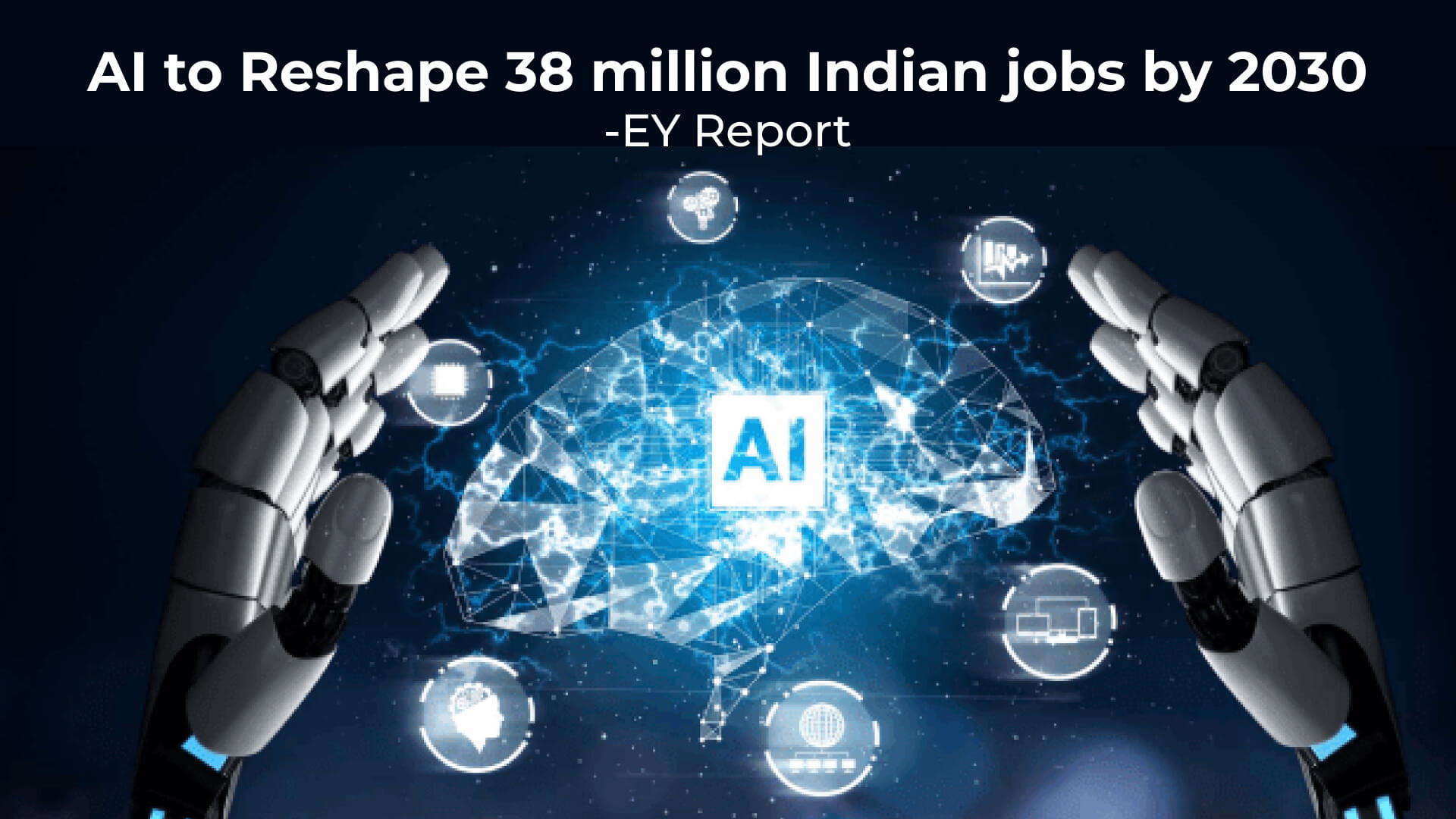By Prasenjit Das

A recent EY (Ernst & Young) report forecasts that AI (artificial intelligence) will impact 38 million jobs in India by 2030. This will contribute to a 2.61% productivity gain in the country’s economy. This report emphasises that the adoption of generative AI in the unorganised sector has the potential to boost additional productivity by 2.82%.
This EY report indicates that 24% of tasks are automable across the industries. Additionally, 42% productivity boost, freeing up 8-10 hours per week for workers. This will lead to significant productivity gains in the service sector due to higher labour share.
EY’s analysis of over 10,000 tasks across industries indicates that software development and call centre management will have substantial productivity gains of 60% and 80% respectively.
AI adoption is highest in content development and distribution by 45%, customer service by 44% and sales/marketing by 41%. Whereas, IT/ITeS can expect a 19% productivity gain, healthcare by 13%, banking/insurance by 8-9%, and pharma and auto by 2% due to lower labour intensity.
Rajiv Memani, Chairman and CEO, of EY India, says, “GenAI is transforming India’s economic landscape by unlocking unprecedented opportunities across sectors. This revolution will fundamentally reshape jobs, driving productivity and innovation. Building talent pipelines and prioritising upskilling must be at the forefront of every organisation. By fostering public-private collaborations and investing in talent development, India can also become a global hub for AI skilled talent.”
While the potential of AI is vast, only 15% of enterprises have implemented GenAI and 11% are still working on deploying it. Furthermore, only 3% of enterprises in India are ready for AI deployments and 23% lack data readiness.